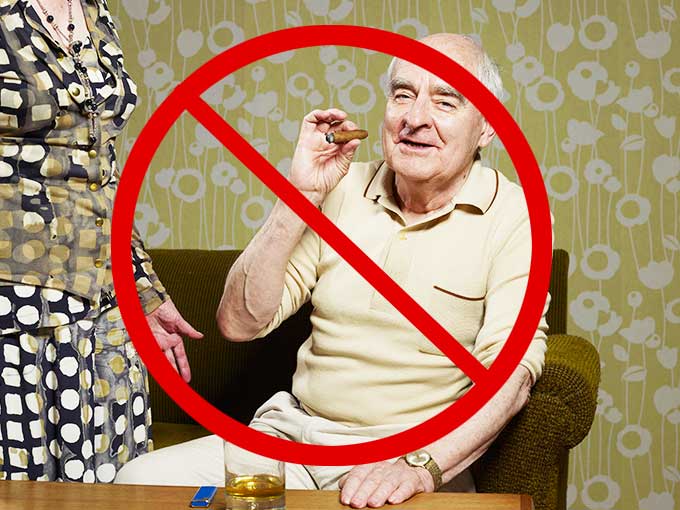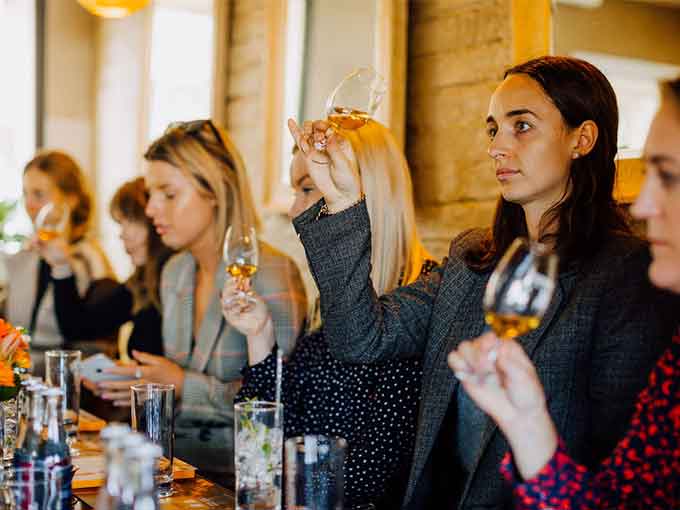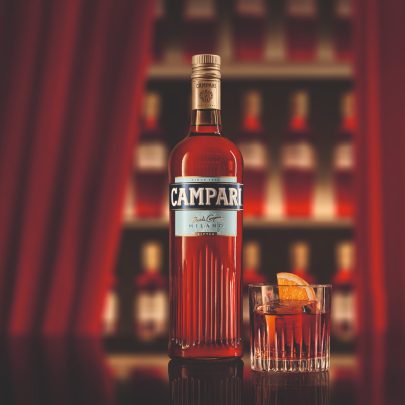Jul 8, 2019 Drinks
Alex Blackwood talked to Brendan McCarron, Head of Maturing Whisky Stocks at Glenmorangie about how whisky is “shedding its old man, only for this occasion, only to be drunk neat and only meant for special occasions” image – and why that is.
When you see all the whiskies lined up in the liquor store, you see names like Johnnie Walker, Robert Burns and Lord Elcho. Old white guy names. With pictures of old white guys on them to complete the picture. When you ponder who might drink those spirits, you might picture the same sort of old guy in a leather arm chair sipping away the evening with his old white pals.
READ MORE: How to drink whiskey: A guide for beginners
In fact, 37 per cent of US whisky customers are now women. In Australia, whisky’s popularity with 18-34-year-olds has grown by more than 50 per cent (curiously, the boom coincided with the airing of Mad Men).
“It’s definitely shedding this image of being for old people only and being this very traditional drink,” confirms Brendan McCarron, Head of Maturing Whisky Stocks at Glenmorangie.
.jpg)
Brendan McCarron, Head of Maturing Whisky Stocks at Glenmorangie ‘nosing’ a tulip glass of whisky.
That’s down to external social perceptions, he says. “Not much has changed in the actual whisky. Glenmorangie’s been around since 1843 in its current guise. Most of those whiskies have been around since the 1930s and 40s in their current style.”
So what is it that has changed about whisky that’s pulling in new fans and giving the beverage a new image?
“I suppose one thing is, it’s now more readily available to get information on interesting drinks now,” McCarron says. Indeed, the growth curve of the internet matches that of whisky – as people have become more able to do their research, the prohibitive secrecy of the “rules” for drinking whisky has vanished. Anyone can get information on how to consume, taste and enjoy. They can follow the “rules” if they like. Or not. Because those rules are dissolving.
“Some people these days are really complicating how you drink whisky,” McCarron says. “They say you need to swish it all around and you need to do this or you need to do that – and it’s horse shit. Certain whiskies are better one way, certain whiskies are better another way and in the same way, some people are going to prefer it lightened up with water, some people are going to like it with ice. It’s just too complicated to set really strict and prescriptive rules.”
Glenmorangie is a very accessible whisky – it’s light, with an orange, vanilla and woody complexity. And maybe because of that, McCarron wants people to mix it up a bit and play around with whisky. He stresses that it’s important to try whisky in more than one way. “It used to be ‘you drink whisky neat’ or ‘you always drink it with water’; those were two of the rules that existed. There are still people in the industry who think that’s how it should be done. And I disagree. I think whisky is best served neat. I’ll be honest- that’s how I enjoy it the most. But there are times I want it with ice, there are times I like it with water in it, there are times when I love it in a highball [whisky with soda, tonic or gingerale].”
.jpg)
And that isn’t just personal preference. Having whisky in more than one way teases out flavours that you mightn’t taste otherwise – worth trying with a whisky which as “something like 150 different flavours” in every mouthful (a number that McCarron reports a master taster once found in a sip of Glenmorangie). Because it’s a beverage he is proud of, he wants people to taste every aspect to its fullest potential.
The whisky industry as a whole is finding ways to welcome change and innovation while still producing the same products your grandparents’ parents loved.
And of course, whisky is very much one of those “interesting drinks” that everyone wants to know about. “Everyone loves something that’s a bit different and also there’s more availability of single malt scotch now than there ever was before… And probably also just the way we talk about it. I mean mixology is a pretty new thing. It’s been about for, say, 10 or 15 years but it’s just become bigger.”
With mixology’s popularity on the rise, as well as an increase in the range of whisky available, people are tasting, sipping and wanting a point of difference with their drink. They want something that is complex enough to taste ‘notes’ in but still easy to drink and maybe even a little bit weird. Whisky fits that bill: it’s complex, it has oddness (peat smoke, shoe polish, fireworks and lawn clippings in your evening drink, anyone?) and yet it’s still sippable.
Another feather in the whisky industry’s new, hip-with-the-kids cap is how it’s started to earnestly strive for more environmentally friendly practices. In 2009, the Scotch Whisky Association (SWA) launched an Environmental Strategy aiming to reduce greenhouse-gas emissions, move away from fossil fuels, send no waste to landfill by 2020 and meet water requirements effectually.

As Adam Hunter, commercial manager at the single-estate distiller Arbikie Highland Estate Distillery puts it, “Consumers and, in particular, the fabled ‘millennial’ generation are looking for more than just a quality liquid. They want to know about your distilling ethos, how you source your liquid, and what your carbon footprint is.”
In Glenmorangie’s case, ‘Project Deep’ saw Glenmorangie work with the Marine Conservation Society to restore oysters to the firth near the distillery to clean the water they discharge. “Restore” because there were oysters beds in the firth 100 years ago – proof that it’s somewhere they could thrive.
“They feed on the Whisky co-products that come out of our distillery”, McCarron explains – so those oysters will be a particularly good match with the whiskies whose by-products they fed on. There’s no denying that a more sustainable industry is more attractive to the younger market who will still have to live in this slowly rapidly dying planet once the old men in armchairs are long gone.
.jpg)
Alex making a whisky highball with way too much love in her eyes.
Brendan’s 3 Tips For Beginners:
(He isn’t a fan of rules though, so take his tips as a guide and do what works for you)
Put your nose into the glass and breathe through your mouth.
“It’s just almost a way for you to breathe in slowly. So breathe through your mouth and air will come in slowly – that helps me to pick out different flavours in amongst what I’m looking for. But apart from that? Do what works for you. I always say, when you start off nosing whisky, get your nose all the way into the glass.”
Don’t get too ice-happy
“The only thing I’m wary of – and it’s just a suggestion – is if you use too much ice, it gets too cold. And if whisky gets too cold, it can close up. It can become a little bit one-dimensional.”
“If it goes too cold it’s really hard to find the little intricate different things and that’s half the enjoyment of single malt. Half the enjoyment of single malt scotch is all these little things of ‘oh I didn’t notice that last time’. So that’s my one word of caution. One massive big cube of ice is the best if you’re going to put ice in.”
Why add ice at all? “The one thing that ice gives to a lot of whiskies is it does give added texture. It sort of thickens things. It makes it a little bit more substantial – a little bit more mouth-coating. So there’s definitely a place for it.”
Try it before you add to it
“If you’re getting a whisky for the first time ever and you’ve never drunk it before, drink it however it’s bottled. Try it neat first and you can easily add an ice cube to it. You can easily add a few drops of water.” Otherwise, it’s sort of like adding salt and pepper to a meal before you’ve taken the first bite. See what it needs first.






